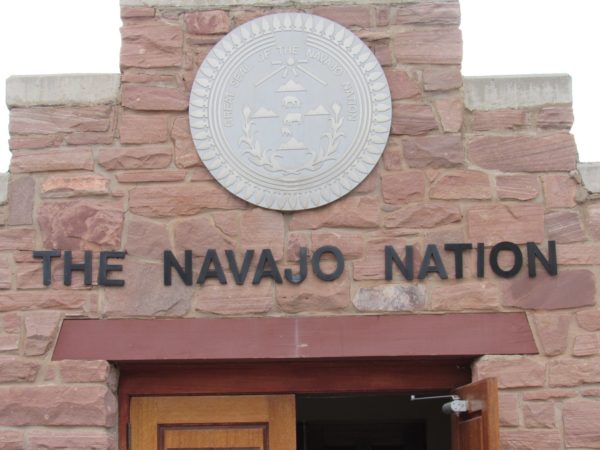
- Details
- By Native News Online Staff
WINDOW ROCK, Ariz. — The Navajo Nation on Tuesday announced the first case of the Covid-19 U.K. variant, known as the Covid-19, SARS-CoV-2 Strain Variant B.1.1.7, was confirmed on the country’s largest Indian reservation.
The U.K. variant was first spotted in the United Kingdom in Sept. 2020 and now has made its way to all 50 states in the United States.
According to the Navajo Department of Health the individual who tested positive for the U.K. variant received the Covid-19 vaccine in February was initially hospitalized but is now recovering at home.
“In this particular case, the severity of the infection for this individual may have been reduced by the vaccine that the person received weeks prior. As we’ve said before, the vaccines do not guarantee that a person won’t become infected with Covid-19 and the variants, so it’s very important to continue taking all precautions even after you are fully vaccinated,” Navajo Department of Health Executive Director Dr. Jill Jim said.
Tuesday’s announcement was made during a live online town hall with Navajo Nation President Jonathan Nez, who was joined by Dr. Jim, Navajo Area IHS officials, Dr. Laura Hammitt with John Hopkins University, and Dr. Amanda Burrage with Tuba City Regional Health Care Corporation.
The unidentified individual lives on the western part of the Navajo Nation.
“We shouldn’t panic, but we should be informed about this new development. There is still much to be learned about this particular variant, but the evidence so far indicates that the UK variant is more contagious and is more severe in some cases,” President Nez said. “We don’t want to cause panic, but we want to reinforce the need to take all precautions by limiting travel, getting tested if symptoms occur, wearing one or two masks, avoiding medium to large in-person gatherings, practicing social distancing, and washing your hands often.”
Contact tracing was conducted, and no further spread was identified beyond the one individual who tested positive for the U.K. variant. The Navajo Epidemiology Center, under the Navajo Department of Health and Health Command Operations Center, continues to coordinate with states and other testing facilities to sequence samples for the variants.
For more information, including helpful prevention tips, and resources to help stop the spread of Covid-19, visit the Navajo Department of Health's Covid-19 website: http://www.ndoh.navajo-nsn.gov/Covid-19. For Covid-19 related questions and information, call (928) 871-7014.
More Stories Like This
Native News Weekly (August 25, 2024): D.C. BriefsNavajo Nation Mourns the Passing of Former Vice President Rex Lee Jim
Deb Haaland Earns Endorsement From Communications Workers of America Local 7076
University Soccer Standout Leads by Example
Two Native Americans Named to Democratic Congressional Campaign Committee's“Red to Blue” Program
Help us defend tribal sovereignty.
At Native News Online, our mission is rooted in telling the stories that strengthen sovereignty and uplift Indigenous voices — not just at year’s end, but every single day.
Because of your generosity last year, we were able to keep our reporters on the ground in tribal communities, at national gatherings and in the halls of Congress — covering the issues that matter most to Indian Country: sovereignty, culture, education, health and economic opportunity.
That support sustained us through a tough year in 2025. Now, as we look to the year ahead, we need your help right now to ensure warrior journalism remains strong — reporting that defends tribal sovereignty, amplifies Native truth, and holds power accountable.
 The stakes couldn't be higher. Your support keeps Native voices heard, Native stories told and Native sovereignty defended.
The stakes couldn't be higher. Your support keeps Native voices heard, Native stories told and Native sovereignty defended.
Stand with Warrior Journalism today.
Levi Rickert (Potawatomi), Editor & Publisher

